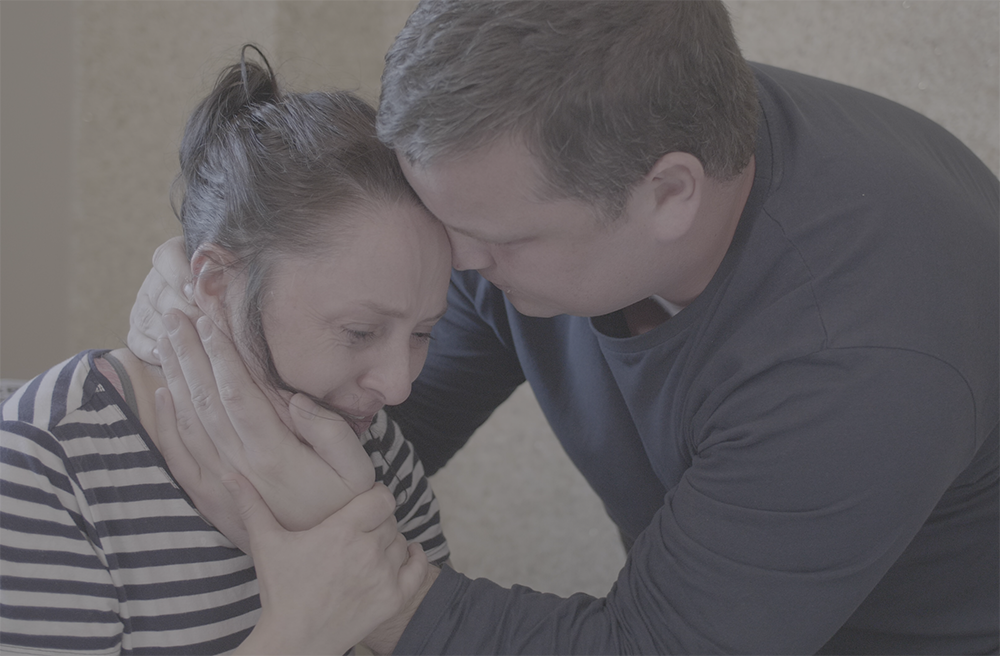Scandals are never easy to write or film about, but what Director/Writer Robbie Walsh of “The Letters” does with his latest film is to humanize the proceedings. The film is about the CervicalCheck scandal that affected Ireland in 2018-present, which failed to notify over 200 women about false negative cervical cancer smear tests, which led to many women developing and dying from cervical cancer. But what Walsh’s film is really about is not cervical cancer, or a scandal, but these women. He focuses his film on three women, showing different walks of life, and how each deals with complicated lives amidst troubling symptoms until each receives a fateful letter, telling of a terminal diagnosis much too late.
“The Letters” falsifies the names involved, but focuses on three women in Ireland, Cliona (Sarah Carroll), Mary (Kathleen Warner Yeats), and Sam (Mary Murray). The film opens upon them, in black and white, as each wakes up and prepares for their day. While troubling symptoms begin which will connect the women, what works most about their stories is how real they feel. While Walsh’s film is a drama, there is nothing dramatic about the presentation of the stories. This is an indie film through-and-through; it shines a light on what undiagnosed cancer does to these women struggling to make their lives work amidst it.
Walsh’s decision to film “The Letters” in black and white—with minimal splashes of color—is a decisive action that leads the film to be more receptive. It helps us to focus on the story in front of us instead of getting lost in the details. “The Letters” is also frequently beautiful; despite its hardships, it forges authentic emotions from its actors, all who give wonderful performances throughout the film.
To talk about “The Letters” is to talk about these three women. We have Sam (Murray), a single mother trying to raise four children. She wakes up, gets her kids up, and listens to much bickering and fighting everyday. But she perseveres. Financial problems abound, she fights back symptoms of cervical cancer that she doesn’t know about and does her best to care for her children. Murray acts the part to perfection; she looks haggard and running on fumes. Her most powerful scene comes toward the end, when, despite progressing disease and weariness she must make herself look like a healthy, working woman to get a loan to survive. She makes the effort seem as heavy and daunting as it is, leaving a mark on our hearts.

The second story, Mary’s (Yeates) is equally heartbreaking. Mary is struggling to take care of her elderly mother (Ann Russell) who seems to be suffering from dementia. Like Sam, Mary is weary from both taking care of her mother—who, due to dementia, often rebuffs her help—and her own growing symptoms of undiagnosed cervical cancer. The film makes us care for her as she battles her own health and frustrations. She has her scenes too; one towards the end as she has a heart-to-heart with her mother about her own health and her mother’s growing needs is especially touching. Yeates makes us believe her character’s struggles and makes us care for her.
The film rounds the stories out with that of Cliona (Carroll), who struggles with her own personal issues and ties the film to the scandal and coverup aptly. Unlike Mary and Sam, Cliona doesn’t have family or a support network. She works for the government, and has a sort of attraction to a colleague (Chris Newman) that regrettably doesn’t have the chance to blossom. Her own symptoms presenting also, she has little support after being let go from her job for finding out about the CervicalCheck fallacies by the unsympathetic ‘Minister,’ played coldly by Director Walsh.
“The Letters,” strength, however, is not its plot, but the way that Robbie Walsh lets us into these women’s lives. It almost feels, coldly, like the audience is the only window into these women’s souls; few others care or even acknowledge their suffering, and their stories feel lonely and singular. Additionally, Walsh, who also is the film’s cinematographer, lets the camera do the talking. Sometimes what we see is uncomfortable (as with worsening health symptoms), but other times what we see is beautiful. Some of the closing shots, filmed in color and featuring bright, happy faces make up for “The Letters’” somber tone. The movie really lets you into these women’s lives; it makes the lives lost and the tragedy of CervicalCheck all the more harrowing as we see its direct impact.
All-in-all, “The Letters” is a solid effort by Robbie Walsh, and a film everyone should see. The film is hard to watch at times, and may leave the audience with an uncomfortable feeling; but a movie like this ought to. It’s a slow-paced film, and requires patience, but in the end is well worth it. It’s slow to start, and the only criticism I had while watching the film was my own difficulty in piecing together the women’s diagnosis, as it’s not explicitly stated. However, in time all is known, and leaves a powerful impression in its wake. “The Letters” is a definite recommend for those looking for a powerful drama.
“The Letters” is currently being shown at film festivals. Follow us for more information of where to view film in the future.
1 Comment
This is a great read, Mark. Will be looking out for this.